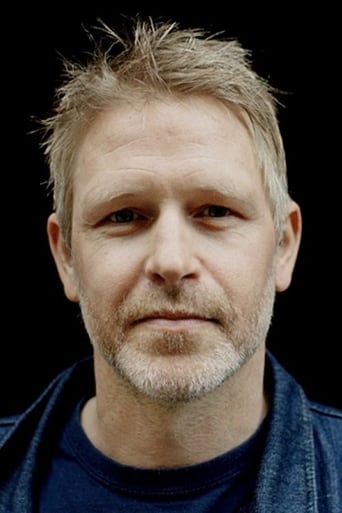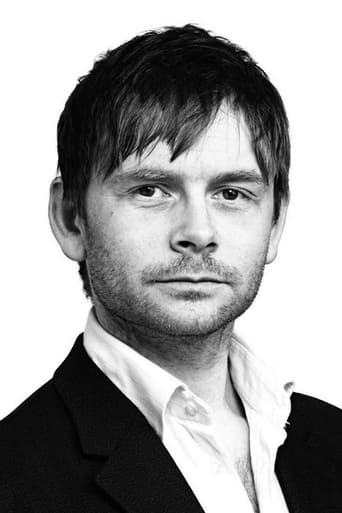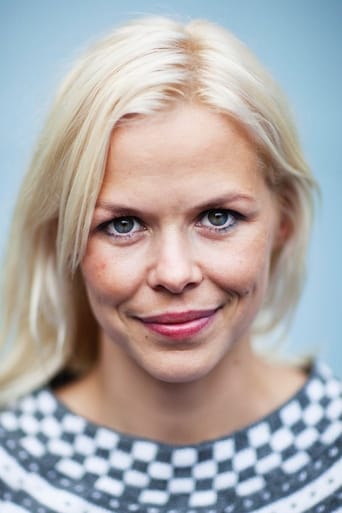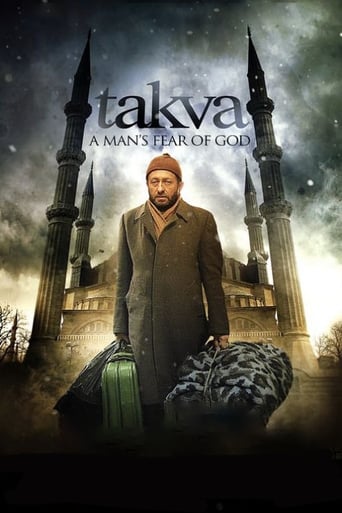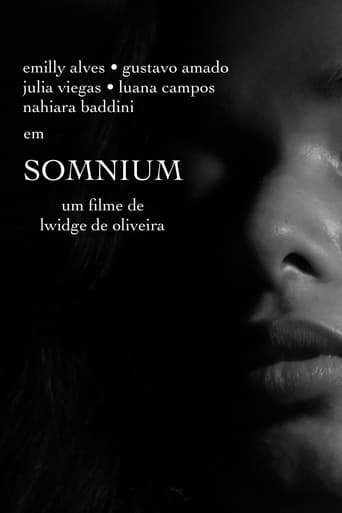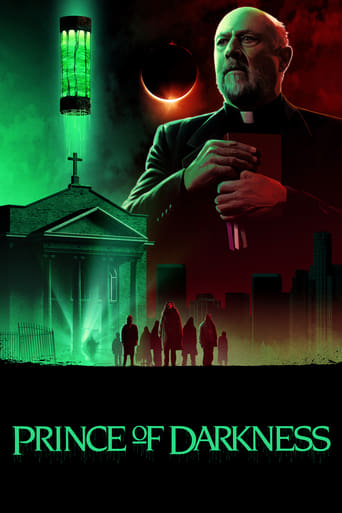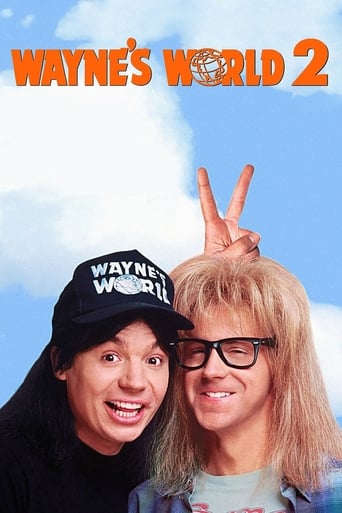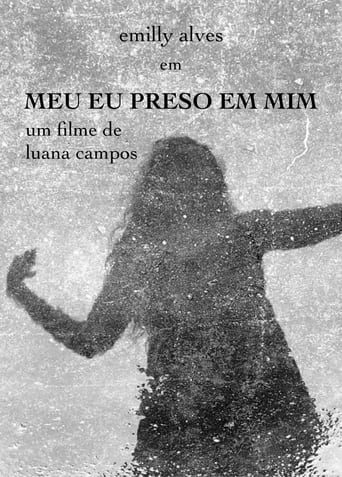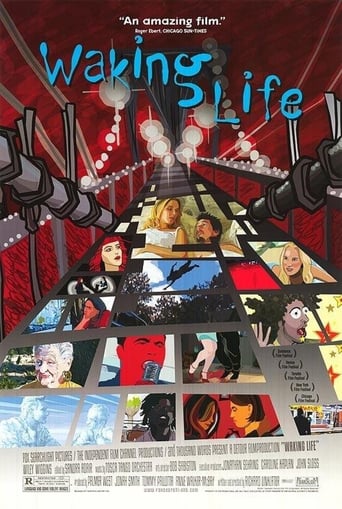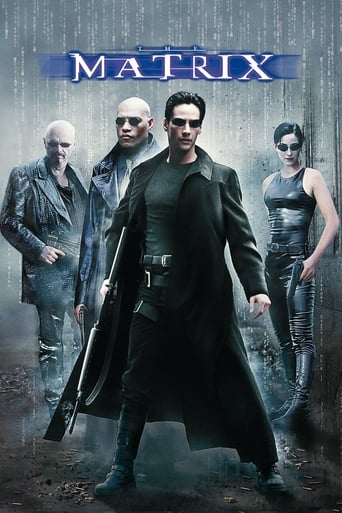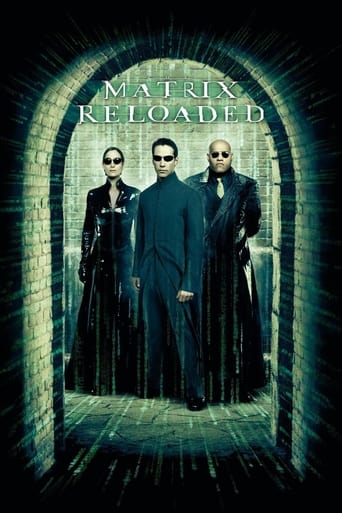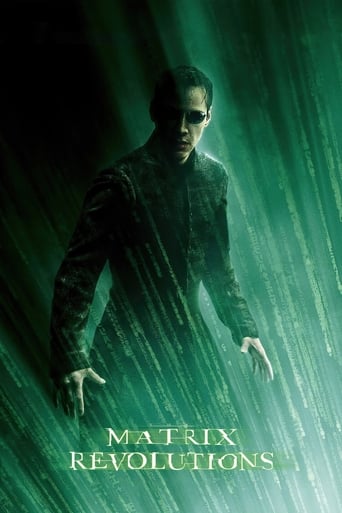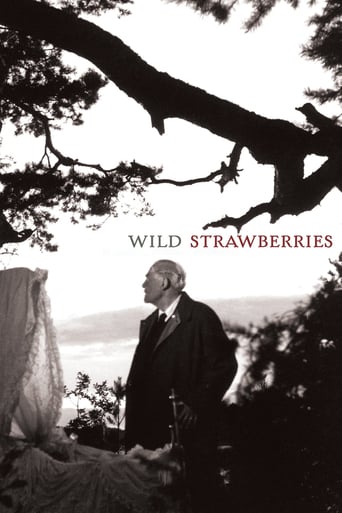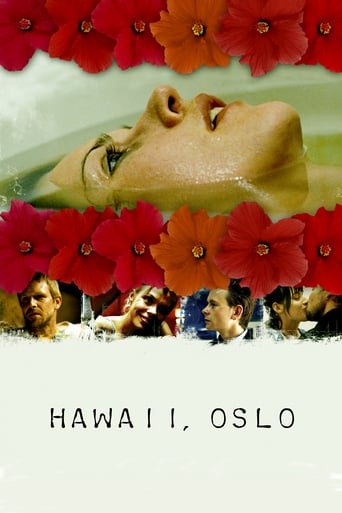
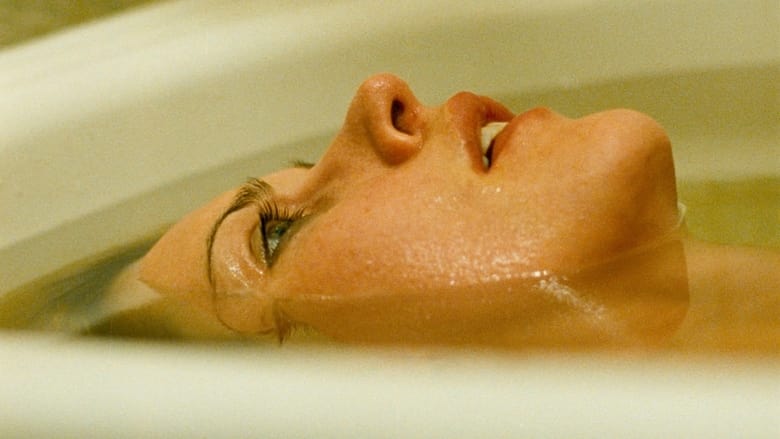
Hawaii, Oslo (2004)
Hawaii, Oslo is the story of a handful of people who cross each other's path without necessarily knowing each other, during the hottest day of the year, in Oslo. We follow Frode and Milla. They are having their first child, who they are told will not live long. We follow Bobbie-Pop, a faded singer who tries to commit suicide. We follow Leon, an institutionalized kleptomaniac who is loking for Åsa, to whom he has a ten year old deal to get married. We meet Leon's brother, Trygve, who fetches Leon at the institution to celebrate his birthday, but who himself has plans to use his leave from prison to run away. And most of all we meet the angel Vidar, Leon's best buddy at the institution, who sees things no one else can see, and who may be able to save everyone - except himself?
Watch Trailer
Cast


Similar titles
Reviews
Simply A Masterpiece
As Good As It Gets
By the time the dramatic fireworks start popping off, each one feels earned.
An old-fashioned movie made with new-fashioned finesse.
Don't we all wish we had a guardian angel watching over us? The film Hawaii Oslo (Erik Poppe, 2004) explores this idea in an interesting way. The lives of ten different people in various tragic circumstances cross paths, centered around Vidar, a man who appears to be an angel. Vidar must try to stop the terrible things he has dreamed will happen, even if it means sacrificing himself. This film has something for just about everyone, with themes of love, loss, separation, brotherhood, and sacrifice. These themes come out through the plot, costumes, editing, and camera work. Before directing his first film, "Hawaii, Oslo", Erik Poppe worked as a cameraman; he clearly knows how to use a camera. The use of a hand held camera along with many close up shots makes the viewer feel close and connected to the characters, as though we are in Oslo with them. This is a film that can appeal to a wide audience, as it is relatable, touching, and entertaining. At the same time, those who love to pick apart film will find this one enjoyable, with many details and techniques to pay attention to.The film hints, and almost directly states that Vidar is an angel. Throughout the film, he wears a long sleeve white shirt. Right at the beginning of the film, Leon tells Vidar, "You're my guardian angel", and finds a feather falling off of him. A few scenes later, we see Vidar look in a mirror that has wings decorating the frame. He turns his back and for a second it looks like he has wings. He also regularly predicts the future through dreams and knows intimate details about people he has never met. In the end, he supernaturally changes places with Leon, and a few more feathers float off around him. All of the other characters (besides the delivery girl) seem authentically human, and all are in need of help. There are two sets of brothers in the film, whose lives have many compelling parallels. Within both pairs, the older brother is tougher and angrier, wears a red shirt, and wants to escape (from prison or from an orphanage). The younger brother is quieter, timid, and kind, wears a light tank top, and wants to stay where they are because of a woman (Asa or their mother). The older set of brothers, Leon and Trygve, have been separated for four years since Leon has been locked away in an institution and Trygve has been locked away in prison. The younger brothers, Mikkel and Magne, fear that they are about to be separated and "locked away" in separate orphanages since their father has died. Any viewer with siblings can probably relate to these characters, and understand their motivations. Both relationships are troubled, yet the brothers love each other. The theme of separation is also seen between Leon and Asa, who have been apart for 11 years. They made an agreement to marry if they were both still single at 25, so on Leon's birthday they finally reunite. Both are nervous and hesitant, but both seem hopeful in following through with their promise. It is easy to root for them, as they are both charming and sincere. At the same time, Mikkel and Magne are reunited with their mother, who has also been separated from them for 11 years. Both of these reunions do not go smoothly at first, but by the end, both end in love and acceptance. Another one of the themes in the film is death. Mikkel and Magne have recently lost their father. Mikkel believes he is to blame, but Vidar knowingly tells him it was not his fault. Although they don't know it, their mother has also just attempted suicide, but chooses to live once she learns of the fate of her sons. Meanwhile, Millon and Frode are devastated to learn that their newborn son has a rare heart defect that will kill him in a matter of days. This leads into the theme of sacrifice. When Frode learns there is a clinic in the U.S. that can perform an operation on their son for 900,000 kroner, he immediately goes home and sells all his worldly possessions. You can tell this is difficult for him, especially when he sells his prize guitar, but he is willing to give up anything to give his son a chance. A series of events leads to him finding a bag of money right when he has lost all hope. The couple agrees that they will take their chance with the operation. Vidar, in turn, makes the ultimate sacrifice. As he watches the events of his dream unfold he realizes there is only one thing he can do. We see Leon get hit by the ambulance, but then suddenly Vidar appears in his place. Leon is unscathed, and Vidar's last words are to tell Leon "I love you"; it is quite touching and sad. It is a tragic yet triumphant ending as everyone has ended up exactly where they needed to be. This award winning film will leave you thinking. The complexity, art, intelligence, and meaning in this film make it worth watching more than once.
In his 2004 film, Hawaii, Oslo, Norwegian director Erik Poppe and screenplay writer Harald Rosennlow Eeg, explore the idea of the redemptive nature of compassion and love. The film drops the viewer into a kaleidoscope of individuals, set into motion in both the world of dreams and reality. Just as Leon compulsively runs, the movie moves towards a conclusion that seems unchangeable. Yet, individual's choices do change the outcomes. These individual choices reflect love and compassion through the themes of paradise, the guardian angel and the value of individual life. As the film closes, there is no clear resolution. The viewer does not know whether the baby will live, the mother will overcome her depression to raise her children or if Leon will be able to develop his relationship with Asa and live outside of the institution. Yet, the viewer is hopeful because all of the characters witnessing Vidar's death have all experienced the possibilities of healing through love and compassion. Hawaii and Oslo evoke different ideas of paradise. Hawaii is a physical paradise that juxtaposes Oslo's long winter. Ironically the action takes place during a heat wave when the temperature in Oslo is similar to average temperatures in Hawaii. Oslo reflects the social paradise of a socialist democracy underwritten by great financial resources. Leon is a beneficiary of such as system and the viewer notices how well he is treated while in institutionalized care. Yet, like the heat bothering Vidar, we glimpse the limits of such ideas of paradise. Physical institutions cannot replace humanity. Throughout the film, institutions fail individuals. Socialized medicine cannot support an "ethically irresponsible" unproven operation for the baby, the bank lender cannot go outside the rules of assets and the boys must be separated for foster homes. So, while paradise cannot be built either in socialist Norway or the tropical climate of Hawaii, individuals have the power to save each other. The idea of the guardian angel weaves itself throughout the story. The guardian angel is idealized in the characters of Vidar and the newspaper delivery girl. They both acknowledge their special roles when Vidar states to the girl, "You aren't who you say you are." In return she states, "Neither are you." Vidar represents the idea of selfless love. He is the one that teaches Leon to love so that in the end Leon can say, "I love you." As Leon picks up the white feather, he directly calls Vidar his guardian angel. Yet, Vidar is ultimately not only his guardian angel, but also the one who sacrifices himself for all the others. With obvious Biblical references, Vidar tells the other male patient that what he does to Leon, he also does to him. The role of the newspaper girl is subtler. She provides compassion. She cares enough to check and the overdosed woman, to sing and provide comfort at the funeral and finally to hug the older boy when no one else can. Neither Vidar, nor the newspaper girl, develop through the story. Yet, they act as catalysts that propel other characters' development. The ambulance driver once again physically saves the overdosed woman, but through Vidar's urging, he goes beyond his job in order to help her become a mother again. Because he has done this, the mother is able to step forward to help her sons. Asa, who saved Leon from the wave machine, looks to Leon to restore her hope in the world. Leon, who was unable to say, "I love you," takes the gift of love from Vidar and is able to embrace Asa. Lastly Frode is able to give hope to his wife after she can no longer save their child through the connection of the umbilical cords. Frode sums up the kaleidoscope of connections when he recalls their first meeting. " I said without me you were a star with no place in the sky, but it's the other way around." In Hawaii, Oslo, Poppe and Eeg emphasize that human connections are much like the kaleidoscope: unpredictable, circular and interdependent. Throughout the film, there is a disconcerting idea of institutions being responsible for valuing or instilling the value of life. Trygve, unchanged by his prison sentence, rejects love and compassion for self-interest. Trygve's actions set into place the ultimate tragedy of the story, Vidar's self sacrifice. First, when the paramedic attempts to save the woman dying on the bank floor, Trygve kicks the paramedic off of the woman. The resulting wound impairs the ambulance drive's sight leading to the accident. Second, Trygve's pusuit of Leon in search of the money leads to Leon's flight into the dark streets. Trygve never acts with regard to other human life, but belittles life in pursuit of his own false ideals of paradise. Perhaps influenced by its own institutionalized optimism, the prison's negligence in releasing Trygve costs Vidar his life. Similarly, the viewer is disturbed by the value placed upon the infant's life by the hospital system. Frode directly attacks the doctors by asking, "Who gets to decide who lives." The movie challenges us to question whether an infant, the mentally ill or the orphaned are any less valuable than ourselves and why we allow institutions to define who is or who should be saved.As the characters gather around Vidar's body, the viewer is reminded that these characters keep walking by each other throughout the movie. Just as they are part of a community, we all form a larger community. Leon's poster asks Asa, "do you remember me?." Similarly the older boy's graffiti says, "I am." Hawaii, Oslo is a poignant reminder that our humanity is not simply who we are, but the sum of how we interact with each other. While institutions can improve life, they cannot provide what every individual needs, compassion and love.
Hawaii,Oslo - Norwegian The best movie I have seen this year so far. This one was a very special , a very unique ethereal experience. I can feel my head cool and relaxed due to the blood flowing inside I guess. The movie was at the same intriguing , spiritual , hopeful , emotional.The script has as much content to extract five six movies out and I am surprised I don't see many awards linked to this movie on the DVD cover. It is about people placed in very very delicate situations and then things turning over magically. There is a father whose new-born son would die in a few hours as he is incapable of sustaining without the umbilical chord.The solution is to create an umbilical chord and fix back and the doctors have written off as impossible. The father does not give up and holds the straw of a private clinic operation at the huge cost of 900,000 Kronas that he cannot manage and he sells off everything and is about to attempt a bank robbery when another character in the movie robs the bank just before.The most joyous moment for me was when he sits dejected and one of the robber brothers, who runs away from the robbery .... edited to not reveal one of the many suspenses that the movie offers There is Leon who runs whenever he is not sure what to do next. The first scene of the movie is a dream that Jiddar(Leon's friend) sees and whatever he sees tends to be true. So he gets worried and tries to prevent the mishaps. The story goes through various situations where incident after incident, things turn positive and starts to move more and more away from the dream until the end when the first scene is repeated as it is. The movie is brilliantly engineered and has a lot of beauty to it. Lot of troubled lives trapped in cities. I would think that lot of the trouble would go off if people live together. A lady takes pills to suicide and is saved by a note message that one of her sons who has not seen each her in eleven years sends through a paper-girl. There is the plot of the robber brother who is given parole to meet Leon on his birthday.I started off by seeing this as a sweet gesture where as quickly a deep plan unfolds. The movie is rich. In story , in emotion , in acting , in direction - perfect control and an awesome awesome ride.
Hawaii, Oslo is a story about the fear of being alone and the struggle to find someone to love. Set in present day Oslo, Erik Poppe's second film tells three different stories that intertwine. First is the story of Leon, an institutionalized kleptomaniac who is celebrating his 25th birthday. He is waiting for Åsa, a longtime friend and soon to be fiancé if they carry out their pact to marry each other if they are both single at 25. The plan becomes more complicated when his imprisoned brother, Trygve, comes with plans to escape the guard watching him and move to Hawaii with Leon. Leon is unwillingly taken on a journey through the streets of Oslo which seem to be taking him farther and farther from Åsa.Next, we meet Mikkel and Magne, brothers who are living on their own after the recent death of their father. Mikkel fears separation from his brother if they enter into state care and acts hostile towards two social workers who take them to see their father's funeral. He is also hostile towards his mother, who has not seen her boys in over ten years. She is introduced in the film with a failed suicide attempt, but finds meaning in life when notified of her children's' father's death by Magne. Her battle to become the boys' mother will not be easy as Mikkel and Magne run away to avoid separation in foster homes.Frode and Mille are the last couple we meet in the film and are the happy parents of a newly-born boy. Their joy over parenthood is destroyed, however, as they learn that their child has a rare heart condition and most likely will not survive for more than a week. Only one hospital in the world has ever fixed this kind of defect, and the operation will cost 900,000 kroner (about $155,000), far more than the couple's assets. Frode will stop at nothing to raise the necessary funds for the operation while Mille gives up on hope for a cure. Their relationship understandably becomes strained over the fate of their child.While these three story lines intertwine, they are connected by Vidar, a supervisor at the institution where Leon lives. He has the ability to see the future and past in his dreams and seems to have a platonic love for anyone he encounters. As he bumps into the troubled characters of the film, he uses his visions to prepare them for the future and comfort them about the past.The film centers on the characters' struggle to find love in their life and the fear of losing the love or fallacy of love they already have. The characters are beautifully portrayed in this aspect, and their fears and hopes seem real. Nothing is overplayed or romanticized and the stories create a fear for the worst in the viewer. Leon is driven by the memory of Åsa and is determined to reach her if she shows up. He is also haunted by the fear that she has forgotten him and that he will never see her again. Meanwhile, Frode fears losing his child and will do anything to assure a long and healthy life for the boy. He sells all his assets, including a guitar once owned by Nirvana's Kurt Cobain, but still comes up short in his quest for 900,000 kroner. With the almost certain death of his child approaching, he must act quickly if he wants to save both the boy and his relationship with his wife. At first glance, Mikkel may appear to dislike his brother, often berating and abusing him. However, this is a sign of love as Mikkel fears losing Magne and only wants to control him to keep him close. He fears his mother does not actually love them as she attempts to become their guardian once again. We see this is not true though, for she seems to need them to carry on with her life. There are some other minor story lines about love including an ambulance worker who falls for the boys' mother after saving her and the love Trygve feels for Leon.The movie also has religious and spiritual themes. Vidar uses his visions to guide and comfort the other characters and is seen as a guardian angel or even as a Jesus-like image. Early in the film, he quotes Jesus in order to stop a patient from harming Leon, saying, "Whatever you do to Leon, you also do to me." He also seems to shed feathers in several scenes and Leon even calls him his guardian angel while holding one of these feathers. There is a great scene later in the movie when we learn that another recurring character is "not who she says she is," but presumably an angel as well. These two divine figures interfere with what appears to be the fate of the characters to be alone and are a driving force for change in the lives of those around them. I did not find this theme particularly compelling but thought it was well done. Poppe presents the divine figures in a very subtle way, not making the movie about them but using them to progress the story. I also think that religious audiences will be more interested in this aspect of the film than I was.Despite these triumphs, the film does have its drawbacks. The plot takes a long time to set up and the slow nature of the beginning can take viewers out of the story. The film is not particularly unique and has nothing new to say. The ending was especially predictable and turned me off a bit. However, Hawaii, Oslo was fun to watch and really involves the viewer. The experiences in the film are ones that everyone can connect to and sympathize with, and the story, driven by many great performances, is engrossing once it takes off.7/10


